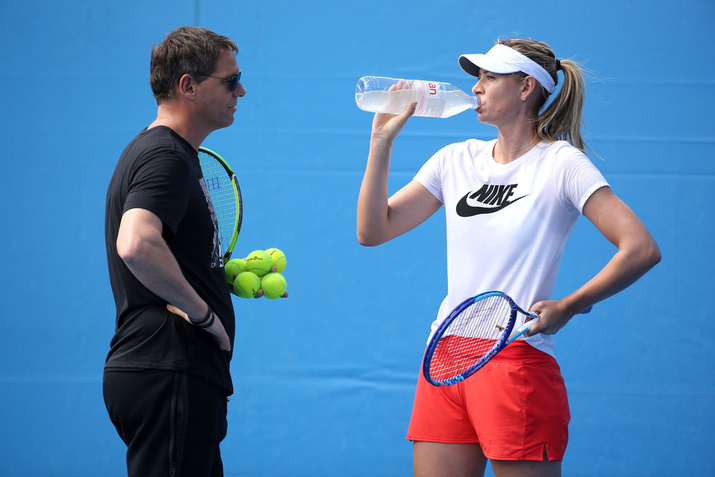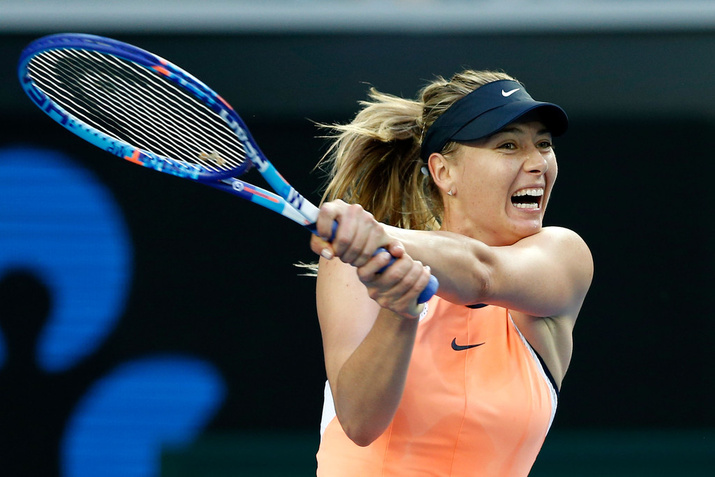Don't miss any stories → Follow Tennis View
FollowTennis and Sharapova's Reprieve
There may be plenty of excellent tennis on offer in Asia, but the biggest story this week is apt to be the Court of Arbitration for Sport knocking nine months off the two-year suspension the ITF handed Maria Sharapova earlier this season following her failed drug test. The ruling has once again sparked ample conversation with fans and pundits falling on both sides of the fence as to what it means for Sharapova and tennis in general.
As far as Sharapova's prospects for returning to the upper echelons of the sport go, most agree that it is not only a near-certainty but one that might happen relatively quickly upon her return in April. She has historically been a constant presence at the top, and with the bulk of the WTA's top talent still struggling to produce satisfactory results on a consistent weekly basis, there is room for her to rise up the ranks. And while she has added some variety, the Russian's game remains a fairly simple one, rooted in outhitting her opposition from the baseline. She will not require a lot of time to regain deft touch, and as she will still be one of the biggest ball-strikers, she has to like her odds of finding quick success. And lastly, while her low ranking may equate to tougher draws early in her comeback, her status as a household name should afford her a generous portion of wildcard offers to rebuild it.

Rebuilding her ranking is definitely the easier challenge Sharapova is facing, however. Rebuilding her reputation could prove quite the opposite. The leaked WADA results of other professionals and their controversial therapeutic use exemptions, or TUE's, could and may have already worked in Sharapova's favor. The issue that so little is known about meldonium may also help her case. But there is no doubt that, to some degree, Sharapova has been her own worst enemy.
For starters, Sharapova initially began by saying she would take responsibility for her actions. She admitted to not properly reading her e-mails, while her agent admitted he did not follow his usual end-of-season routine to ensure both he and his client knew what was on the banned substance list. Since then, Sharapova has pointed the finger at the ITF, essentially accusing them of going on a witch hunt and failing to properly inform players of changes to the rules – a fair topic for debate but a sentiment that hardly jives with taking the same level of responsibility she did with her initial admission. Her reasoning behind taking the drug also fell under scrutiny, with the company that manufactures it feeling the need to come forward and explain its proper use was not in line with what Sharapova first described. Furthermore, though she may have honestly had only the best intentions, one could also conclude that she was trying to get an edge in performance based on her pattern of use of the drug.
The most awkward aspect to explain away in this scenario though is the secrecy surrounding her use of the drug. She has since claimed that one of the many ITF officials she would see on a regular basis should have alerted her to the drug becoming banned, yet by her own admission, she frequently failed to disclose she was taking it. That is a violation in and of itself and is also what makes her case different than those who received TUE's. On the surface, that she chose to tell so few people in her camp about using the drug could also suggest that even when it was legal, she felt that what she was doing could be construed as unethical. None of this is to say that Sharapova was ever truly looking to gain an edge and get by with something, but for a woman who has built such a successful business brand, it is astonishing that she could be so careless with the image this presents and leaves a question mark concerning her reputation in the future.

It also calls into question where this leaves tennis. It has demonstrated that there is still a lack of funding to do proper testing and understand the nature of the various drugs used by players, thereby making it nearly impossible to mete out a punishment most can agree is just. The TUE cases that were indirectly linked as a topic of conversation with Sharapova's situation also have raised questions as to whether there is adequate policing of that policy so that players cannot misuse it to unfairly get ahead. All told, there is still much work that is needed to clean up this area of the sport.
But it is not all bad for tennis, nor is it all bad for Sharapova. Sharapova will always be a name that sells tickets, so love her or hate her, tennis will benefit from her return next spring. Additionally, in a world of 24/7 news cycles and short attention spans, this story will blow over to make room for the next big thing. Officials should learn from it what they can, and in the meantime, tennis, and Sharapova, already have a star headline to look forward to next April.










